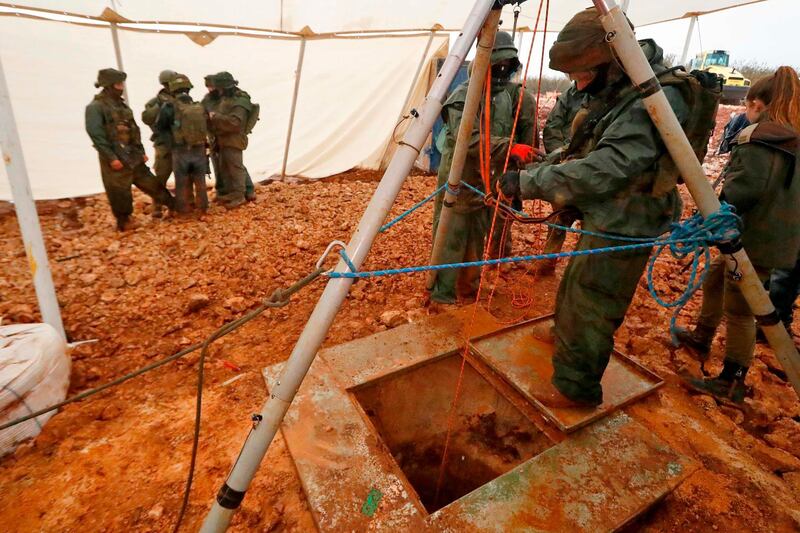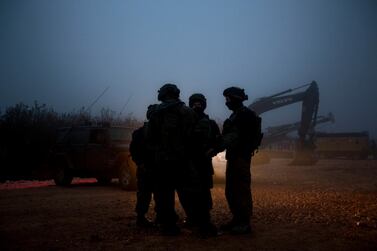Hezbollah has “for years” been able to enter Israel, the leader of the Iranian-backed Lebanese group said on Saturday, responding for the first time to the discovery of tunnels dug across the border.
Israel’s unveiling of what it called Hezbollah “attack tunnels” last month, coupled with Lebanon’s accusation that an Israeli border barrier crosses into its territory, have increased tensions.
Speaking in an interview with pro-Hezbollah Al Mayadeen TV, the group's secretary general Sayyed Hassan Nasrallah said Hezbollah did not want to draw Lebanon into a war with Israel.
He also warned that Israeli prime minister Benjamin Netanyahu might miscalculate before the upcoming elections in April and “do something rash”.
Although south Lebanon has experienced its longest period of peace in three decades some 12 years after the 2006 war, both Hezbollah and Israel often goad each other across the UN-demarcated and manned separation line.
There are well-established, albeit unspoken, red lines but missteps have caused conflict. Mr Nasrallah has previously said that he would not have ordered the cross-border raid in 2006 that sparked the 34-day conflict with Israel had he known that it would escalate.
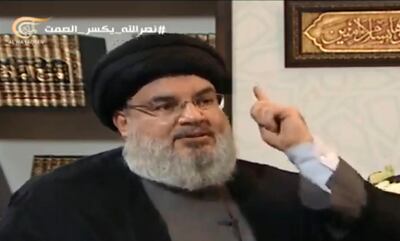
Israel regards Iran as its biggest foe and Hezbollah as the main threat on its borders. It is becoming increasingly vocal about the need to take action. It has waged an increasingly open campaign of military strikes against them both in Syria, where they are fighting on the government side in the civil war.
They say this is to prevent high-tech weapons transfers from Tehran reaching Lebanon, however it has also increasingly focused on incursions and build-ups near the edge of the Israeli-occupied Golan Heights.
Mr Nasrallah said that the campaign had been useless. “Netanyahu’s attempts to prevent us from having [precision weapons] by shelling Syria are useless,” he said.
While cautioning against Israeli adventurism, Mr Nasrallah warned Israel that the group would and could retaliate against further airstrikes in Syria.
“What happened a few days ago in Syrian airspace was a huge development,” he said of a recent Israeli airstrike on Iranian military sites in near Damascus. “At any moment a decision might be taken to deal with Israeli aggressions differently.”
He said the "axis of resistance" – referring to the group, Iran, Syria and other party backers – could escalate their response, including bombing Tel Aviv.
The threat of missile strikes has led Israel to order an ammonia processing and storage facility be moved from Haifa after Mr Nasrallah has repeatedly threatened to intentionally strike the site in a future conflict and cause a massive chemical explosion.
Both Israel and Hezbollah have indicated that any new conflict between them would be greater in scope than the 2006 war that was fought in Lebanese territory.
“Part of our plan in the next war is to enter into Galilee, a part of our plan we are capable of, God willing. The important thing is that we have this capability and we have had it for years,” Mr Nasrallah said.
He added that all of Israel would be the battlefield and reiterated that the group now had precision rockets that could strike deep into Israel.
Hezbollah has warned for years that they possess longer-range missiles capable of striking any part of Israel, they have not used them in previous conflicts instead relying on a huge arsenal of tens of thousands of short and medium-range projectiles.
Sayyed Nasrallah stopped short of explicitly saying the cross-border tunnels were Hezbollah’s work, citing the heavily armed group’s policy of “ambiguity” on military matters and a desire to deny Israel a pretext to attack.
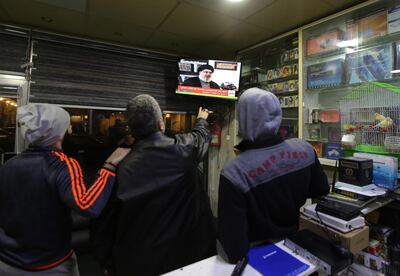
He added that Hezbollah's leadership had debated whether to comment on the discoveries when Israel announced Operation Northern Shield. Mr Nasrallah said they had decided to do so once Tel Aviv announced the completion of the operation. The reason was, he added, that they did not want to be part of Mr Netanyahu's media campaign.
He said Israel was still looking for more tunnels, despite having said its operation to find them was over. He added that Israel had only discovered some tunnels, saying “it is not known” if more exist.
Mr Nasrallah added that Mr Netanyahu had done the group’s work for them by using the discovery of the tunnels to spread fear among settlers near the frontier.
Last week, United Nations Middle East envoy Nickolay Mladenov said that at least two of the tunnels found by Israel crossed the agency’s demarcated Blue Line between the countries, “and thereby constituted violations”.
UN Security Council resolution 1701, which ended the 2006 war, said both sides must stick to their side of the Blue Line and that on UN peacekeepers and the Lebanese Army were permitted to operate south of the Litani River.
The Blue Line is a decades-old demarcation point used to ensure Israeli withdrawal of forces from Lebanon until they can agree on a formal delineation of the disputed border. Israel occupied much of south Lebanon until a guerrilla campaign, fought largely by Hezbollah and its allies, drove Tel Aviv to retreat in 2000.
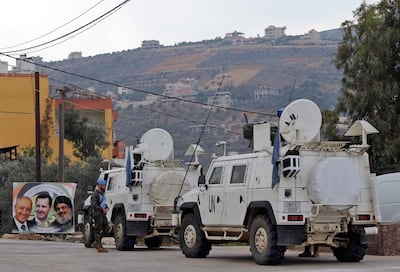
Mr Nasrallah chose to reveal that "one of the tunnels discovered goes back 13 years," predating Resolution 1701, but did not elaborate on others.
He said that the Israeli operation to clear the tunnels had not caused division between Lebanese factions and that there was a broadly agreed position on how to push back against Tel Aviv.
On the issue of government formation in Lebanon, eight months after the first parliamentary election in nine years, he said there had been "exceptional efforts" made over the weekend to finalise an agreement.
Hezbollah’s last-minute demand to include Sunni ministers not allied to Prime Minister-designate Saad Hariri’s Future Movement derailed an almost secured deal in October.
Since then, efforts to divvy up ministerial positions have been fruitless.
Mr Nasrallah reiterated Hezbollah's demand for six ministers in the next government and that they had not dropped their demand for a non-Future Movement Sunni minister. He said that an agreement on these points was outstanding but that Hezbollah wanted to keep momentum in talks with Mr Hariri.
There have been swirling reports that the recent hiatus of Mr Nasrallah's regular media appearances and speeches was down to ill-health. He dismissed them too.
